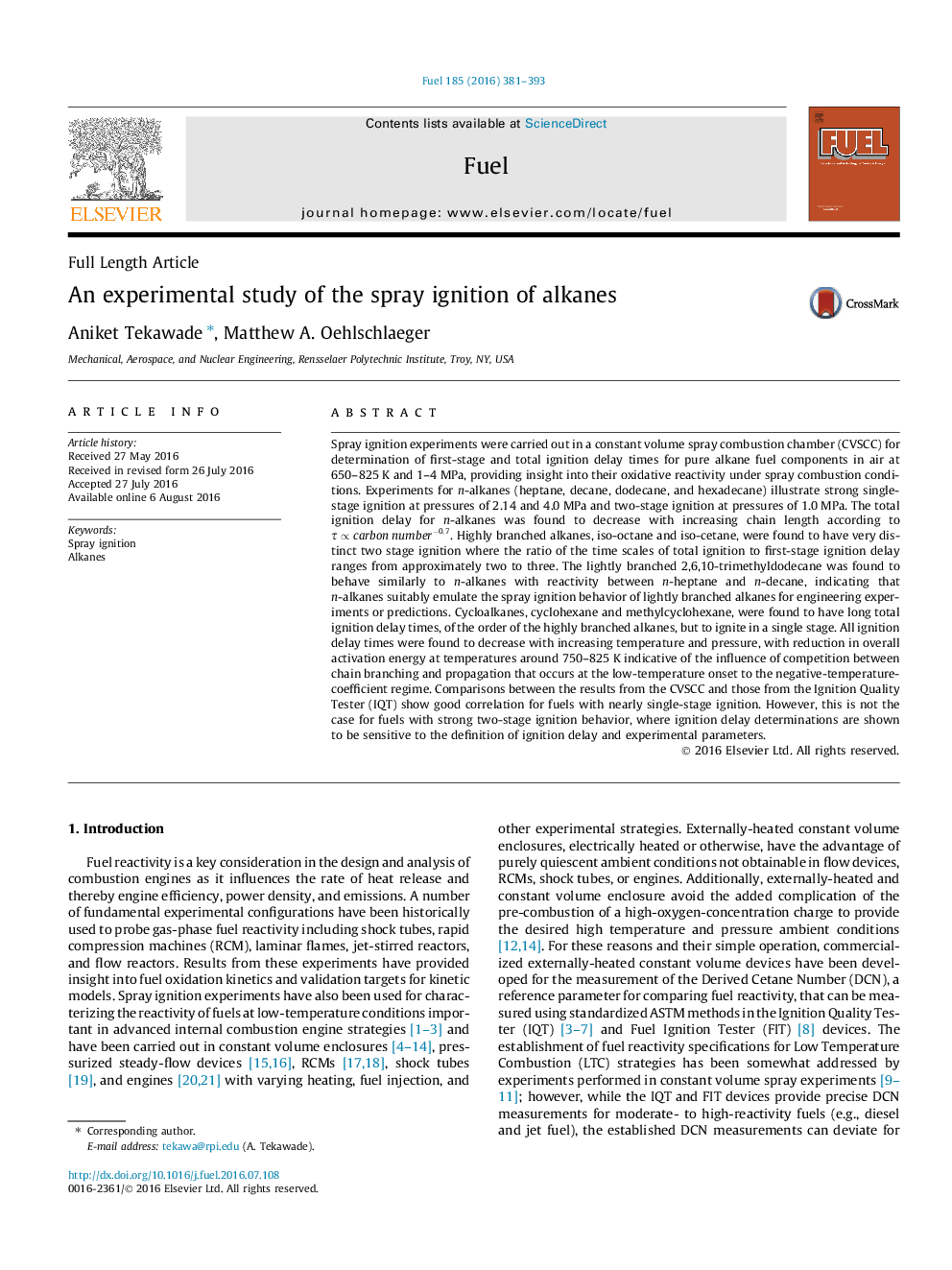| کد مقاله | کد نشریه | سال انتشار | مقاله انگلیسی | نسخه تمام متن |
|---|---|---|---|---|
| 6632786 | 461088 | 2016 | 13 صفحه PDF | دانلود رایگان |
عنوان انگلیسی مقاله ISI
An experimental study of the spray ignition of alkanes
ترجمه فارسی عنوان
یک مطالعه تجربی برای احتراق اسپری آلکانها
دانلود مقاله + سفارش ترجمه
دانلود مقاله ISI انگلیسی
رایگان برای ایرانیان
کلمات کلیدی
موضوعات مرتبط
مهندسی و علوم پایه
مهندسی شیمی
مهندسی شیمی (عمومی)
چکیده انگلیسی
Spray ignition experiments were carried out in a constant volume spray combustion chamber (CVSCC) for determination of first-stage and total ignition delay times for pure alkane fuel components in air at 650-825Â K and 1-4Â MPa, providing insight into their oxidative reactivity under spray combustion conditions. Experiments for n-alkanes (heptane, decane, dodecane, and hexadecane) illustrate strong single-stage ignition at pressures of 2.14 and 4.0Â MPa and two-stage ignition at pressures of 1.0Â MPa. The total ignition delay for n-alkanes was found to decrease with increasing chain length according to Ïâcarbonnumber-0.7. Highly branched alkanes, iso-octane and iso-cetane, were found to have very distinct two stage ignition where the ratio of the time scales of total ignition to first-stage ignition delay ranges from approximately two to three. The lightly branched 2,6,10-trimethyldodecane was found to behave similarly to n-alkanes with reactivity between n-heptane and n-decane, indicating that n-alkanes suitably emulate the spray ignition behavior of lightly branched alkanes for engineering experiments or predictions. Cycloalkanes, cyclohexane and methylcyclohexane, were found to have long total ignition delay times, of the order of the highly branched alkanes, but to ignite in a single stage. All ignition delay times were found to decrease with increasing temperature and pressure, with reduction in overall activation energy at temperatures around 750-825Â K indicative of the influence of competition between chain branching and propagation that occurs at the low-temperature onset to the negative-temperature-coefficient regime. Comparisons between the results from the CVSCC and those from the Ignition Quality Tester (IQT) show good correlation for fuels with nearly single-stage ignition. However, this is not the case for fuels with strong two-stage ignition behavior, where ignition delay determinations are shown to be sensitive to the definition of ignition delay and experimental parameters.
ناشر
Database: Elsevier - ScienceDirect (ساینس دایرکت)
Journal: Fuel - Volume 185, 1 December 2016, Pages 381-393
Journal: Fuel - Volume 185, 1 December 2016, Pages 381-393
نویسندگان
Aniket Tekawade, Matthew A. Oehlschlaeger,
